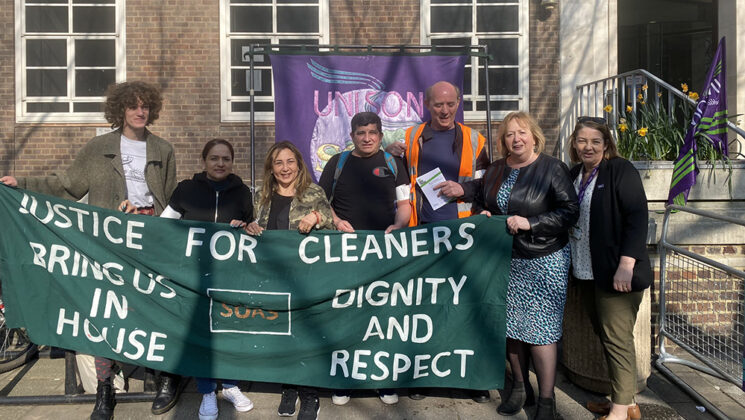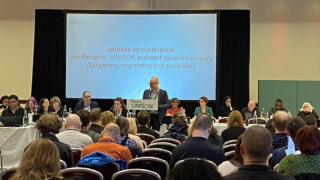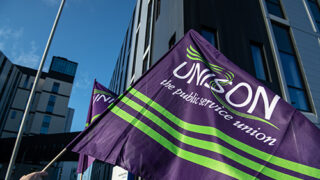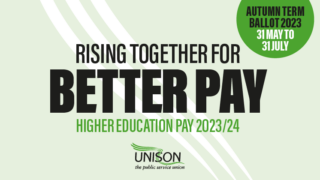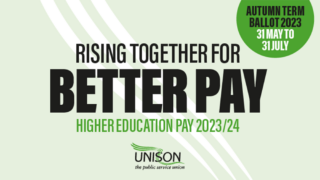University employee pay has fallen by nearly 20% over the past 12 years. UNISON’s higher education members responded to our recent survey explaining how real terms pay cuts affect them. Some are forced to take on second jobs just to pay their bills, and one member told us they couldn’t even afford to get their prescription, so had to go without.
Thousands of university workers are on the legal minimum wage, with many more thousands falling below the Living Wage Foundation rate. But when the new minimum wage of £9.50 comes into effect this Friday, four pay points on the higher education pay spine will fall below it for those working a 37 hour week.
Many universities are having to take urgent measures to ensure this doesn’t happen. But we’ll also see a rise in the energy price cap on 1 April, council tax increases will hit at the beginning of April too, the national insurance rise starts from 6 April, and the childcare costs cap for those on universal credit will not rise with inflation in April – staying the same as it has since 2016.
It’s little wonder that many UNISON members have been left with no choice but to vote to take strike action over their pay and pensions. They’ve seen the value of their wages eroded for so long, and the added pressures on their living costs are mounting up.
It’s a shame on the whole sector that higher education members – some working for world-class institutions – are struggling to survive on their university pay packets.
Across the country UNISON members have experienced attacks on their pension schemes too. Whether it’s employers seeking to avoid providing support staff with the Local Government Pension Scheme or through detrimental changes to the USS pension scheme. It’s because of these attacks that 60% of our members say they don’t feel valued by their employer, with 55% saying it’s due to their basic pay levels.
University staff have had enough. Along with other education and public service workers, they worked throughout the pandemic to keep their universities going, ensuring vital research was uninterrupted and that students had access to online lectures and seminars.
University staff helped students to isolate, provided pastoral care, set up IT systems, and kept campuses safe and secure. University employers need to get serious about working with UNISON to tackle poverty pay and make sure the pay spine is fit for the future, and provides rewarding career paths for all staff, regardless of grade.
As UNISON – along with the other joint higher education trade unions – enters into pay talks for the new pay year, I’m calling on university employers to make our members an offer that keeps up with the rising cost of living; an offer that begins to catch up with the loss in value of pay and that recognises the vital contribution that all staff make to our fantastic higher education institutions.
Our message is clear: “Make our members an offer that’s good enough – and remember, warm words of thanks won’t pay the bills”.
• Pictured top: Christina McAnea on the picket line at SOAS in London on Friday.

